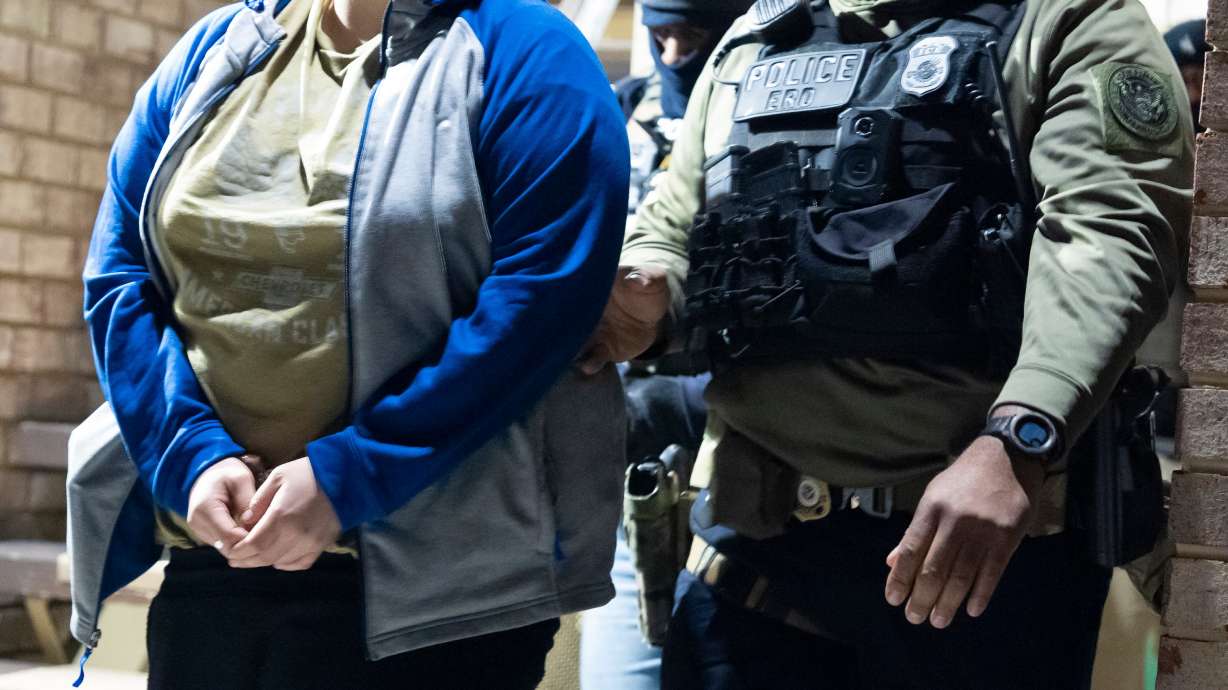Estimated read time: 2-3 minutes
- Five Quaker congregations filed a lawsuit against DHS over immigration arrests in churches.
- The lawsuit claims the directive violates religious liberty by deterring worship attendance.
- An asylum-seeker was arrested outside a Georgia church, raising concerns about policy enforcement.
BALTIMORE — A group of Quakers is challenging the Trump administration's immigration policy on the grounds of religious liberty.
Five Quaker congregations, also known as the Religious Society of Friends, filed a lawsuit Monday that opposes a new Department of Homeland Security directive that allows immigration arrests at places of worship.
For decades, the DHS' standing policy was that arrests should not take place in "sensitive locations" — such as churches, schools or hospitals — except in extreme circumstances. Trump's acting DHS secretary reversed that policy last week.
"Criminals will no longer be able to hide in America's schools and churches to avoid arrest," a DHS spokesperson said. "The Trump administration will not tie the hands of our brave law enforcement, and instead trusts them to use common sense."
The Quakers' lawsuit, filed in a federal district court in Maryland, argues that the new DHS directive impedes Quakers' ability to practice their religion.
Quaker religious practices, the lawsuit explains, "depend on communal worship. And Quakers believe that the presence of worshippers from different backgrounds is integral to hearing messages from God."
The lawsuit cites Roman Catholic Diocese of Brooklyn v. Cuomo, in which the Supreme Court decided that the New York state government's decision to limit religious gathering during the COVID-19 pandemic was unconstitutional. The court ruled that "attending religious services" is "at the very heart of the First Amendment's guarantee of religious liberty."
By the same measure, the Quaker plaintiffs argue, this DHS policy violates the religious liberty of those worshippers who may be nervous to attend services.
"The very threat of that enforcement deters congregants from attending services, especially members of immigrant communities," the lawsuit says. "Losing congregants is a substantial burden on plaintiffs' religious exercise, especially when those congregants would bring to worship different backgrounds and life experiences. And deterring worshippers from attending services chills plaintiffs' First Amendment rights of association."
ICE arrested man outside Georgia church Sunday
The first reported instance of ICE making an arrest at or near a place of worship since the policy change occurred Sunday.
Wilson Rogelio Velasquez Cruz, an asylum-seeker from Honduras, was arrested outside Iglesia Fuente de Vida in Tucker, Georgia, Sunday. Velasquez Cruz's wife, Kenia Colindres, told WSB-TV that ICE agents awaited her husband outside of their church and arrested him when he departed the service. Colindres and their three young children were at the church.
Luis Ortiz, the church's pastor, told Telemundo Atlanta the arrest occurred shortly after the Sunday worship service concluded.
"He has an ankle monitor, but he also has his permit, his ID, his Social Security and everything is in order," Ortiz said. "It's something inexplainable."
ICE only plans to enter "sensitive locations" for immigration rests if there is a "significant public safety or national security threat," said Tom Homan, Trump's "border czar," during an interview on CNN Sunday.
A DHS spokesperson did not respond to a request for comment about the threat Velasquez Cruz posed.









